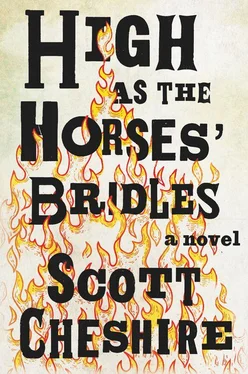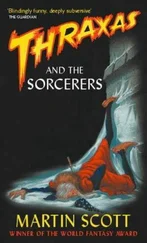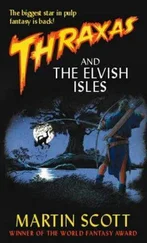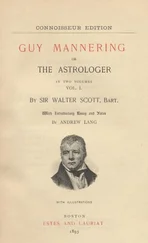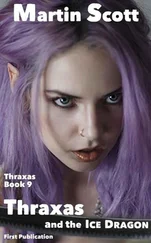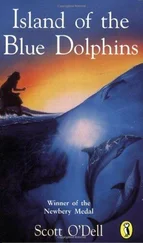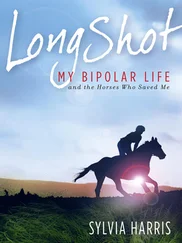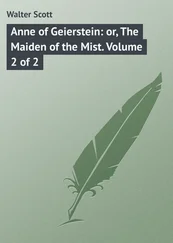Weirdly, the church brothers started paying me even more attention. They sat me down in the back room and explained that Issy’s disappearance was solid proof we were in the Final Days, and that he was my closest friend was proof of my gift. Satanic forces were actively working against me. Be careful. I must remain strong. And so it was time I give another sermon, perhaps at another local congregation.
I wanted nothing of the sort.
I looked around at the elder brothers. They were so tall.
“Where’s my dad?”
There was a drop ceiling above us, rectangular foam tiles propped by metal ribbing, and I was filled with a sudden urge to push aside a tile and see what lay beyond there. Pipes? Electrical wiring? A dark empty space.
“Your father gave us his blessing,” one of them said.
But I didn’t want to give sermons anymore. Why? Because I was afraid it would happen again. I couldn’t really put it into words, but it was the total loss of self onstage, in front of everybody — or is that the right way to put it? Maybe the opposite. I knew what I’d done up there was special, like nothing anybody there had ever seen. Certainly like nothing I’d ever seen, or done, and yet I’d been physically compelled to do it. It wasn’t by choice, didn’t feel like a choice. But I also knew very well what I had done, knew that it was me who had done it, even though I didn’t exactly know what I was doing at the time. I imagine it like the way a child actor can’t stay away from a camera the very first time he sees one, and he never knows explicitly why. An infant, and he’s posing for pictures! All I knew was that getting onstage would mean doing that “thing” again, playing that part, and, frankly, it meant talking about God doing terrible things to fine people. How did I know who was or wasn’t good? It meant talking about blood, and war, and vengeance, and getting nice people, as far as I could tell, to applaud for it. I could not have articulated this at the time, but I felt it inside my body. In my skin. And I was also a little afraid that it wouldn’t happen — I’ll admit that now: that I could never do it again. I was afraid to find out.
Plus the kids in church, they had already avoided me, but now, after Issy, they acted like I carried some kind of contagion. Get too close and disappear. Havi claimed he was Issy’s best friend, probably for the attention, although by that time I knew it wasn’t true. Some of the others, the older ones, closer to twenty, now started paying me attention. I was invited for after-church lunches. Let’s go to a diner, and see a movie at the Woodhaven Boulevard Cinemas. I think they had some vague religious ambitions, and thought befriending me would improve their standing. I just wanted to be alone. But soon it was settled. Again in the back room, this time with Dad and the congregation elders. I would give a short sermon at the end of October on the satanic evils of Halloween. On devils, and witches, and ghosts, all abominations in the eyes of the Lord.
The year before, a few neighborhood boys were seen trick-or-treating dressed up like the rock band KISS. Obviously because of a local demonic influence. Just look to the acronymic herald: Kids In Satan’s Service. It would be years before I got the unintended irony, when I first heard “Rock and Roll All Nite,” and pretty much anything else from their totally benign catalogue. Evil as Saturday morning cartoons. Nevertheless, my subject: “The Satanic Dangers of Halloween, and the Everyday Demonic Influences Around Us.” Dad was enthused. Mom was not.
Was the timing appropriate? I mean, there was Issy to think about, and that was what I should have been doing — as a family, what all of us should have been doing. Praying for Issy.
She said, “I’m sorry, but I just don’t like it.”
This was in the living room, at the table. We were having our weekly Bible study and she just came out with it.
Dad said, “Let’s not argue in front of the boy.”
That same week Mom went to the doctor, and told him how tired she always was, whole-body tired, and it wasn’t long after that we found out she had cancer. I ran off into the backyard, and sat myself again beside the maples Issy and I used to climb, and I tried to not think about it at all. I slapped at the ground beside me. It didn’t hurt much and so I got on my knees and I punched at the ground. Punched like I wanted to hurt it. And then I stood up and I looked at one of the maples, imagining one of them was me, and one was Issy, and I touched it with a knuckle to see how hard it was. I cocked back my fist, such a small fist, and I punched the tree. I scraped my knuckles on the bark. They bled. I punched it again, squarely, and I heard my knuckle snap. I started crying, and sat back down in the dirt. I prayed, cradling one hand in the other. Where had he gone? Why had he gone anywhere at all? And why that summer? I must have asked for this. Maybe I hadn’t talked with God himself, not had a conversation with him, not a dialogue, but that didn’t mean he didn’t hear me. My God, what had I done? I’d called out and asked for the End. I’d rolled out a red welcome carpet, and, yes, I didn’t know what this meant, not then: that really this meant death. Real blood. Red blood. But it was becoming clearer to me. It hadn’t touched me yet, not exactly, but nonlife, nonbeing, the hole in the air that Issy now was, that had touched me, and I couldn’t help but make a connection between the two. Here was the one kid who let me in, who treated me like a kid, like I wanted to be treated, and so I acted like a kid, the way I wished I could act with the other kids, or with my father. Here was the kid who became my brother, who made me feel less lonely, and now he was gone. My best friend, who never once seemed anxious or afraid. I used to wonder whether Issy somehow knew this would happen, that it was coming. Otherwise, why had we compressed what felt like years of friendship into months, weeks into days, hours? I wondered if it was my fault, whether God had simply answered my call. Issy was the first one to go. And now maybe Mom would go next.
All this remembering took work, and walking up and down Dad’s block, taking in the pungent nighttime neighborhood air, I got hungry. And thirsty, and I hoped to scare up some booze. I wanted to sit on the back porch and get tipsy. I wanted to look at the maples. Those same trees. Was it possible? The same dirt? I went back inside and stopped by the bathroom and listened there for Dad. He was talking in his sleep, mumbling. I said his name, quietly. Nothing. I heard his breath quicken and slow, quicken and slow, and I imagined his legs moving like how a dog’s legs quiver when the dog dreams of a chase. I tried the doorknob. It was locked. I looked at the red light and walked away into the kitchen, opened the fridge and took out the butter. I rifled through drawers in search of a knife, found one, cut a thick slice of bread. I looked at the kitchen, at the cat turds, at the trash on so many surfaces. I took the bottle from the fridge. Uncorked, and nearly empty. I said to myself, If I don’t move a muscle, then maybe the room will feel clean. I moved, and something crunched underfoot.
On the far wall, there was a simple wooden cross and beside it a decorative plate. I walked closer. These were new. Maybe not new, but I’d never seen them before. A gold Star of David was painted in the center of the dish. And burned into the wooden cross, on the horizontal piece were the words “Beth Sarim,” and on the vertical, in smaller letters, “O. Laudermilk, 1930.” I wondered who the “O.” was. I knew my father’s father was an Orville, and I think he shared the name with his father, my great-grandfather. But I could’ve been wrong. Probably my grandfather’s. I had no idea who Beth Sarim was. Beside the cross was the backyard door. I pulled, but the door was stuck. The weather had done what it does, and the door felt grafted to the frame. I pulled, and again I pulled, until the door gave way, and stray leaves and string, paper cups and newspaper wads, all in an upswept pile against the door, tumbled into the kitchen. I jogged back to the counter. Grabbed the bread and the wine.
Читать дальше
